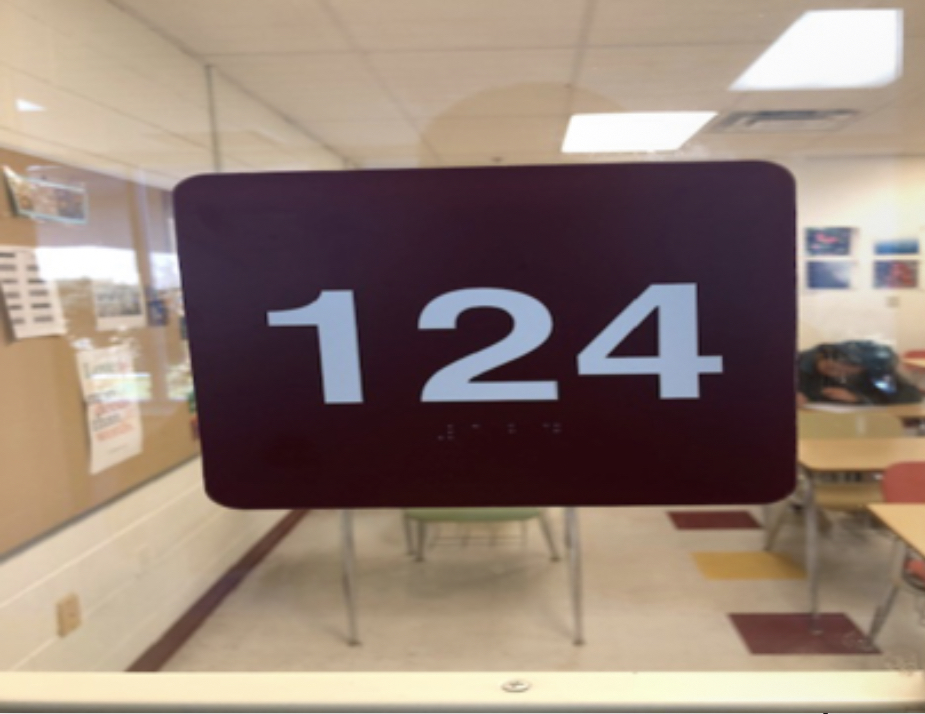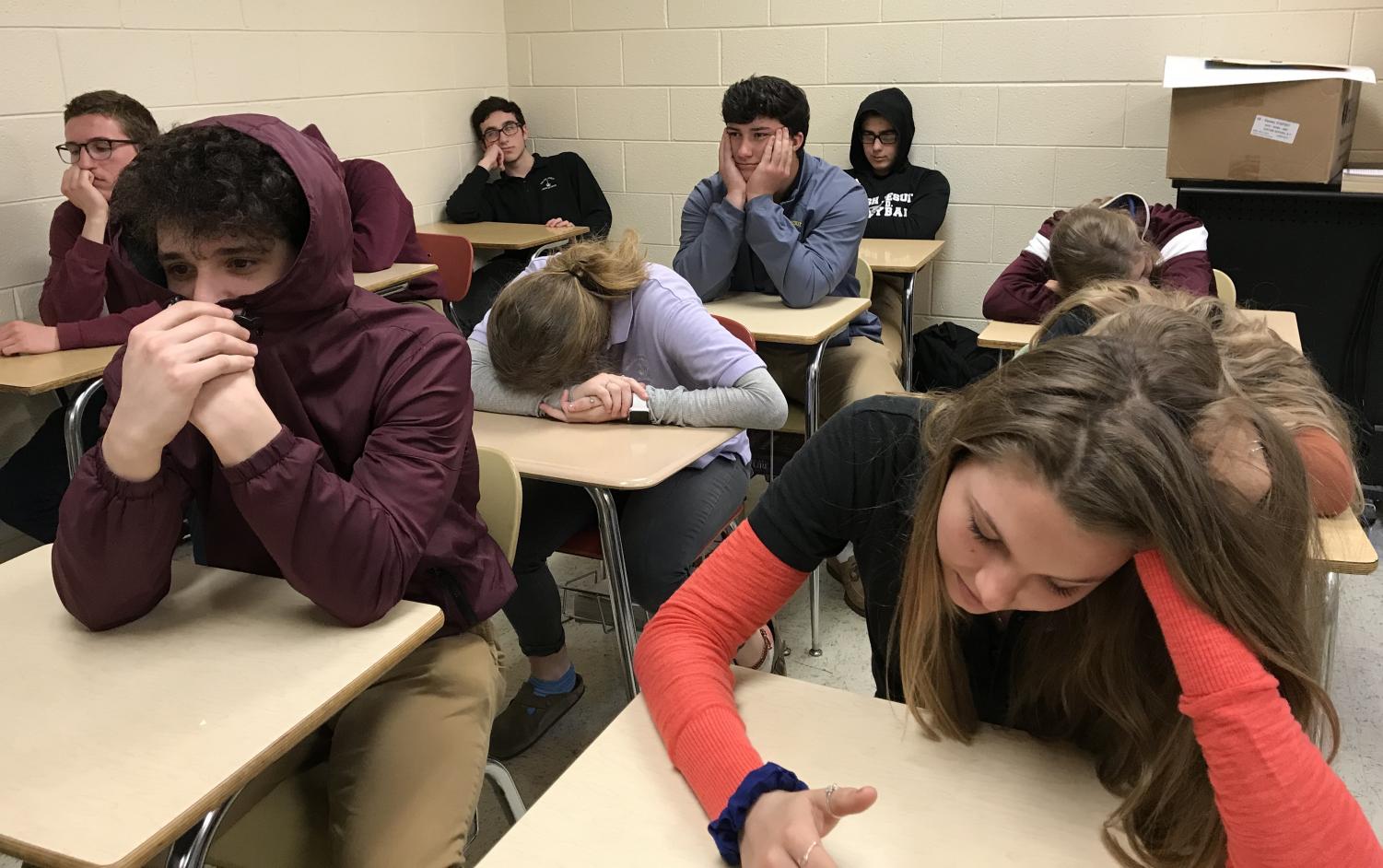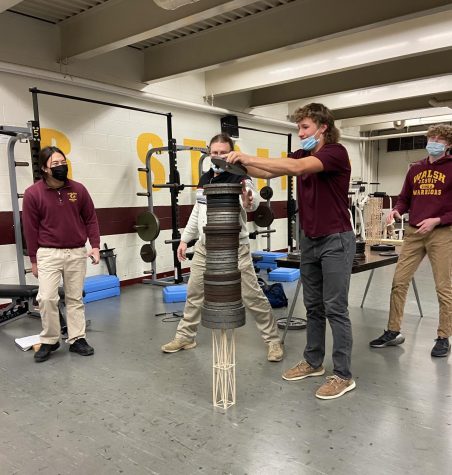Detention: A mixed bag
March 30, 2019
You rush to school on a Monday morning and don’t have time to stop at your locker. You hope no one notices your illegal outerwear, then Ms. Hudec calls out, “Detention on Tuesday!” You think your life is over.
However, for sophomore Nick Jarosewic, the exact opposite is true. “Detention really helped me get my homework done and relax and wasn’t that awful,” Nick explained.

Room 124 has been hosting detentions this year.
For some reason, the faculty and administration of many schools stumbled upon their correction technique of choice: making kids sit in a room for an hour after school. Fortunately, they have yet to discover an even more painful punishment by holding detention on Friday when everyone wants to start the weekend. Most adults believe that if students behave badly, they should face consequences which aim to bring about a penitent spirit and correct their behavior.
For Kathryn Coughlin, a senior, detention didn’t have the effect that the faculty and deans hoped it would, similar to Nick’s experience. Kathryn said, “I got a detention for being tardy three times. I didn’t really learn much because I’ve been tardy since.”
Other kids believe they get an undeserved bad rep for being in detention. Many people like to imagine the worst possible infractions students in detention have committed to get them there. In fact, the offenses can be minor, like chewing gum in certain classes or wearing a non-Walsh Jesuit sweatshirt on a cold day.
For example, senior Andrew Faulhaber got in trouble for something many kids do every day. He said, “I don’t know why, but I got a detention for drinking iced tea in Mr. Dowdell’s class.”
Although detention seems awful on the surface, it can give kids time to relax and get their homework done. For the luckier ones like senior John DeLuca, that after school session can turn into a situation worth talking about.
John said, “I was serving detention [last year] for throwing a water bottle across the room, trying to make it in the trash. When I was serving my detention, we got to leave within the first 20 minutes because Ms. Hudec had to go to lacrosse practice.”

Many students find detention to be an ineffective means of correcting student behavior.
However, in other cases receiving a detention has served its purpose and helped straighten people out, whether it be because of the detention itself or because of the consequences after receiving one.
A junior changed his behavior in the classroom after a detention. He said, “I was in Mr. Stoffl’s class, and there was a balloon on the floor. I was told not to pick it up, but I did it anyways. I learned to listen to my teachers more because, not only did I receive a detention, but I was grounded for a week.”
Many others have had similar experiences where their parents added a pinch of punitive salt to the school’s inflicted wound of detention.
Senior Andrew Passarel experienced his parents “displeasure” after receiving his first detention. “I got a detention for being on my phone in the Commons. When my parents heard about my detention, they were not happy and ended up grounding me for a few days,” Andrew admitted.
Despite the displeasure of some parents, many students do not see detention as an effective corrective course of action. Aside from the inconvenience of staying after school for an hour, there is no stigma attached to being seen in the detention room after the last bell has rung.
“There is not any stigma attached to detention because there is such a wide range of reasons for getting them. Getting a detention could be for something as simple as wearing a hoodie on cold day,” stated junior Ceci Ochmann.











Thompson • Oct 25, 2024 at 2:36 pm
I hate the new form of detention where you write the handbook word for word. I know it’s supposed to be a punishment, but they could at least have us do something productive.
Elena • Apr 1, 2019 at 2:35 pm
As I was reading this article, Mr. Swin gave a detention for someone wearing the wrong polo. I told him to read this article!